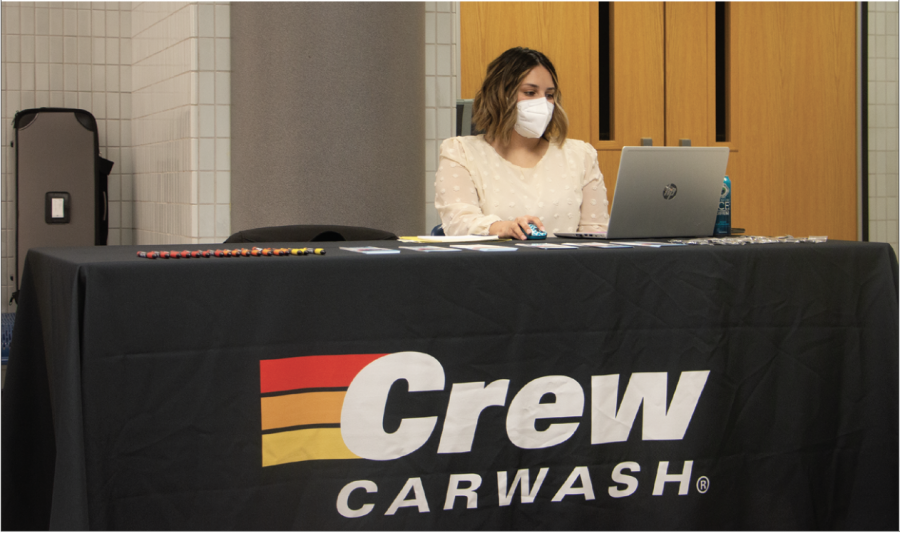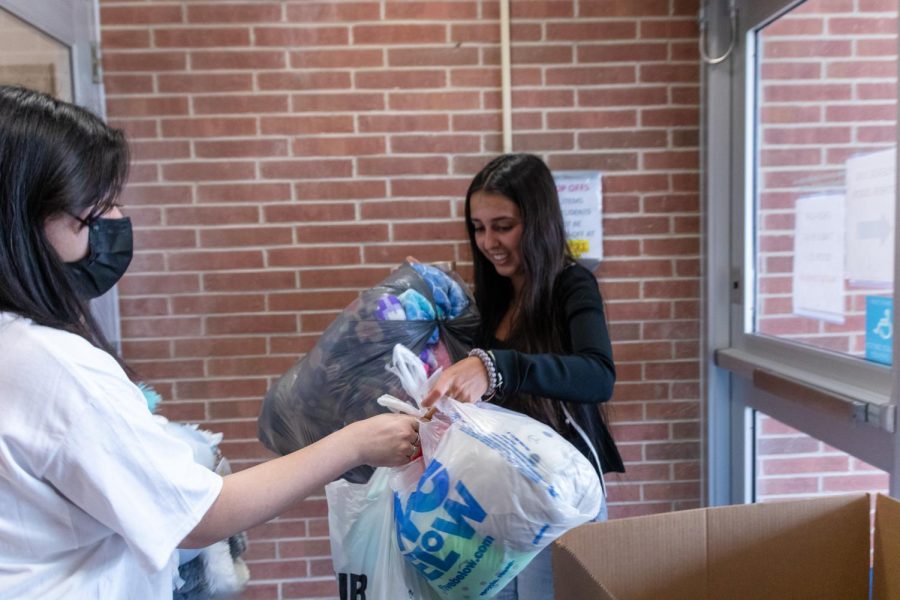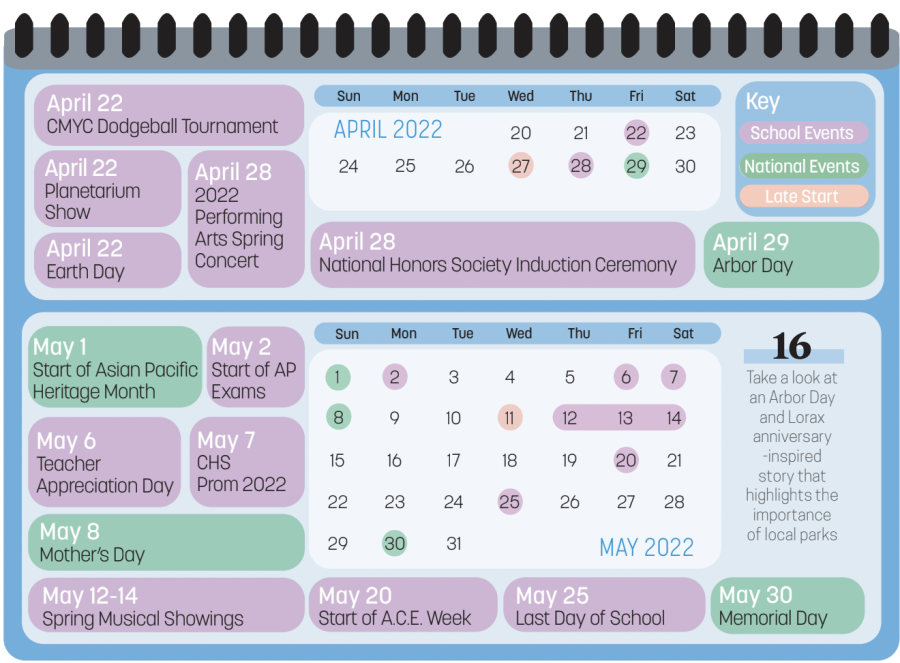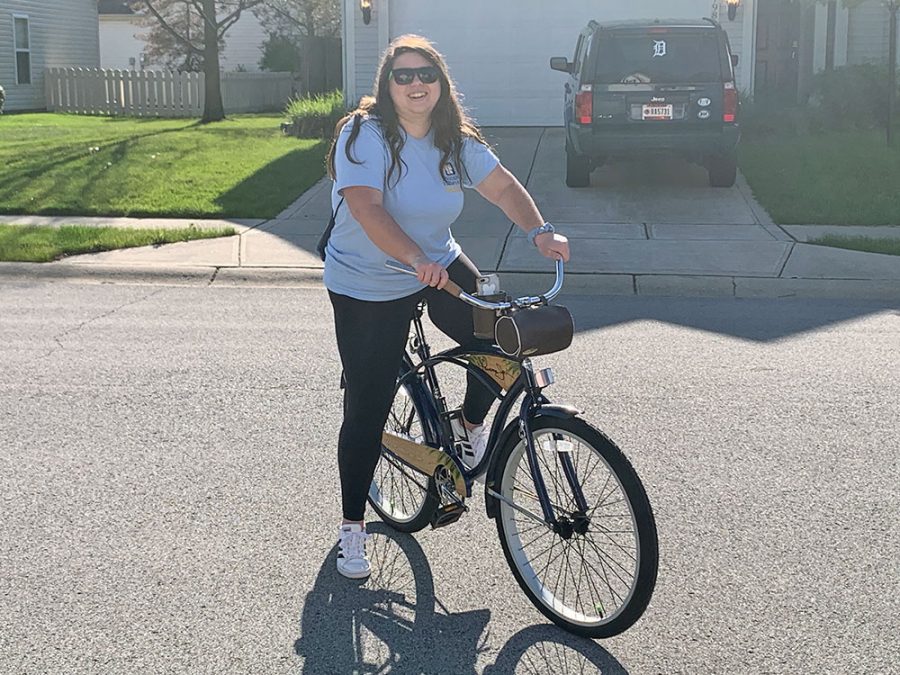As America reaches over 1.5 million coronavirus cases, as of May 21, much of the country remains under lockdown, creating an unprecedented recession—one that takes the form of social isolation. Such isolation comes with significant health implications, particularly from a psychological standpoint.
 For senior Stephanie Morton, she said her transition to quarantine was particularly rough.
For senior Stephanie Morton, she said her transition to quarantine was particularly rough.
“For me personally, the first few weeks (of quarantine) were probably some of the hardest just trying to adjust to everything,” Morton said. “I wasn’t doing my schoolwork, and I’d spend the day lying in bed. I think all of that combined together was just not healthy for me. I had a job; I worked as an assistant teacher at a place called Sprouts. I assumed that throughout quarantine, I’d be able to keep working and save money—and then they let me go for the time being. That was something that really hurt to take in, and I think that led to me sitting in bed all day and not wanting to go out or do anything.”
According to CHS social worker Mary Reese, it is natural to need an adjustment period following the start of a global crisis. She added one’s mental health may be harder to manage now due to the major changes each individual experiences.
“Everyone is impacted in one way or another as we have all undergone a major change in our day-to-day lives. Certain individuals may feel a sense of grief during this time,” Reese said via email. “Others may demonstrate increased anxiety, sadness and fear related to a situation where they feel they have little control.”
While Morton said she dealt with negative thoughts and avoided schoolwork, she began to overcome it as a result of external pushes and becoming more aware of her mindset.
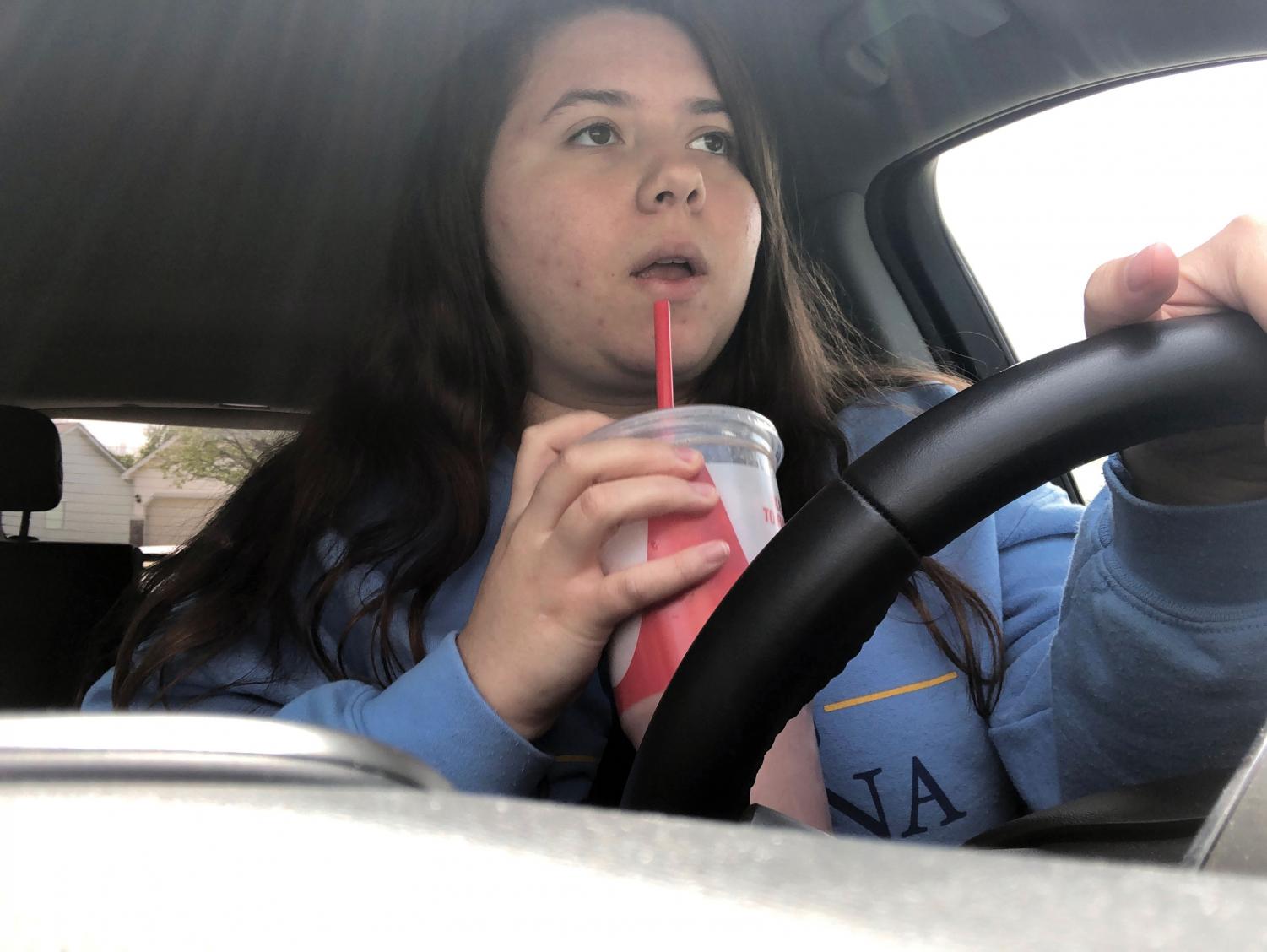
“I think it came to a point where I knew that I had to change things because I couldn’t spend the rest of however long this is going to take moping around, especially after all my teachers were contacting me and my parents kind of sat me down and were like, ‘You can’t keep living like this,’” Morton said. “That was when I decided to set a routine and set miniature goals every single day. Something that helps me mentally (is being able to acknowledge that) this was the homework that I got done today, or I was able to play guitar. Little achievements like that were something that helped me maintain my mental health.”
Many current high school students are learning new systems of accountability as they no longer have the structured routine of in-person school. Such systems may take on various appearances. For example, while Morton found it helpful to create routines and acknowledge each small accomplishment as a success, junior Uredoojo “Uredo” Agada found it helpful to set up checkpoints.
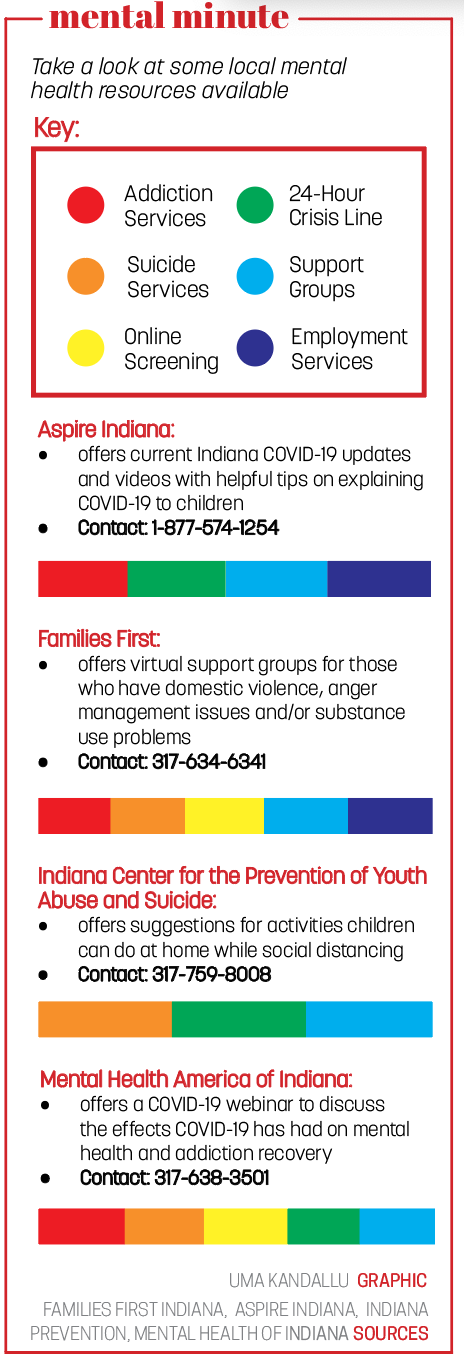 “I started a bullet journal during quarantine,” Agada said. “(By) being able to have a place where you could put your thoughts and schedule things out and write down the things you need to do, you can see, ‘Okay, here’s what I need to do.’”
“I started a bullet journal during quarantine,” Agada said. “(By) being able to have a place where you could put your thoughts and schedule things out and write down the things you need to do, you can see, ‘Okay, here’s what I need to do.’”
In addition to accountability and routine, Reese emphasized the importance of maintaining social contact, especially as humans are naturally social, and said students should continue to reach out. Agada said she felt somewhat disoriented with the lack of daily social interaction that came from school, and learned from this time in quarantine the importance of deliberately reaching out to others.
“There’s so many ways you can try and connect with people still and I find that it’s very comforting. The most important thing is just taking the initiative and realizing that even if somebody hasn’t first reached out to you, that doesn’t mean they don’t want to talk to you,” Agada said. “Being in a social recession, that’s been tough, but it has forced me to be more intentional with realizing that you have to reach out.”
Reese added that while quarantine is taking a toll on many students, many resources are still available as well.
“The counseling department at Carmel High School continues to work remotely until the end of the school year and is happy to provide support to students and their families,” Reese said. “The good news is that should these feelings become overwhelming and difficult to manage, there is a wealth of resources out there that can help.”
Click here to another story about self-care.




























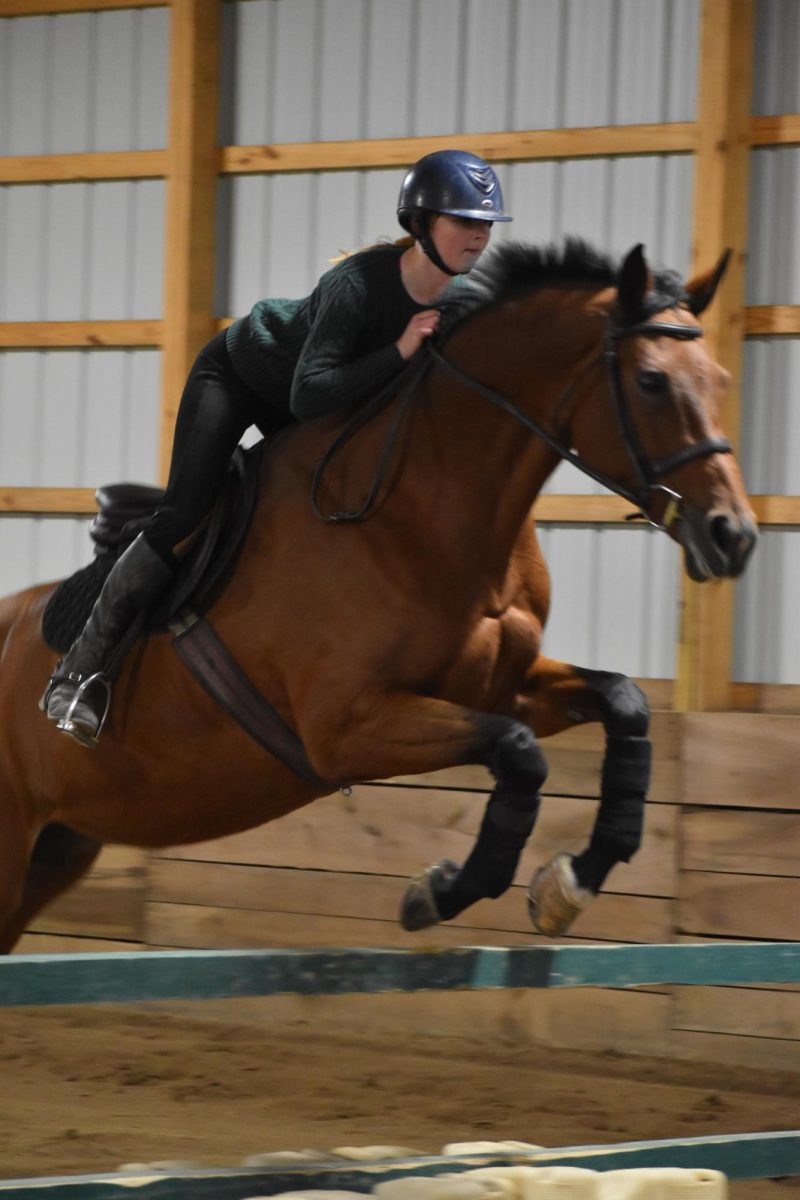





![British royalty are American celebrities [opinion]](https://hilite.org/wp-content/uploads/2024/03/Screenshot-2024-03-24-1.44.57-PM.png)



















![Review: Quiet on Set: The Dark Side of Kids TV is the long awaited exposé of pedophilia within the children’s entertainment industry [MUSE]](https://hilite.org/wp-content/uploads/2024/04/unnamed.jpg)
![Review: “The Iron Claw” cannot get enough praise [MUSE]](https://hilite.org/wp-content/uploads/2024/04/unnamed.png)
![Review: “The Bear” sets an unbelievably high bar for future comedy shows [MUSE]](https://hilite.org/wp-content/uploads/2024/03/unnamed.png)
![Review: “Mysterious Lotus Casebook” is an amazing historical Chinese drama [MUSE]](https://hilite.org/wp-content/uploads/2024/03/0.webp)
![Thea Bendaly on her Instagram-run crochet shop [Biz Buzz]](https://hilite.org/wp-content/uploads/2024/03/IMG_0165-1200x838.jpg)
![Review in Print: Maripaz Villar brings a delightfully unique style to the world of WEBTOON [MUSE]](https://hilite.org/wp-content/uploads/2023/12/maripazcover-1200x960.jpg)
![Review: “The Sword of Kaigen” is a masterpiece [MUSE]](https://hilite.org/wp-content/uploads/2023/11/Screenshot-2023-11-26-201051.png)
![Review: Gateron Oil Kings, great linear switches, okay price [MUSE]](https://hilite.org/wp-content/uploads/2023/11/Screenshot-2023-11-26-200553.png)
![Review: “A Haunting in Venice” is a significant improvement from other Agatha Christie adaptations [MUSE]](https://hilite.org/wp-content/uploads/2023/11/e7ee2938a6d422669771bce6d8088521.jpg)
![Review: A Thanksgiving story from elementary school, still just as interesting [MUSE]](https://hilite.org/wp-content/uploads/2023/11/Screenshot-2023-11-26-195514-987x1200.png)
![Review: When I Fly Towards You, cute, uplifting youth drama [MUSE]](https://hilite.org/wp-content/uploads/2023/09/When-I-Fly-Towards-You-Chinese-drama.png)
![Postcards from Muse: Hawaii Travel Diary [MUSE]](https://hilite.org/wp-content/uploads/2023/09/My-project-1-1200x1200.jpg)
![Review: Ladybug & Cat Noir: The Movie, departure from original show [MUSE]](https://hilite.org/wp-content/uploads/2023/09/Ladybug__Cat_Noir_-_The_Movie_poster.jpg)
![Review in Print: Hidden Love is the cute, uplifting drama everyone needs [MUSE]](https://hilite.org/wp-content/uploads/2023/09/hiddenlovecover-e1693597208225-1030x1200.png)
![Review in Print: Heartstopper is the heartwarming queer romance we all need [MUSE]](https://hilite.org/wp-content/uploads/2023/08/museheartstoppercover-1200x654.png)























![Review: Ladybug & Cat Noir: The Movie, departure from original show [MUSE]](https://hilite.org/wp-content/uploads/2023/09/Ladybug__Cat_Noir_-_The_Movie_poster-221x300.jpg)

![Review: Next in Fashion season two survives changes, becomes a valuable pop culture artifact [MUSE]](https://hilite.org/wp-content/uploads/2023/03/Screen-Shot-2023-03-09-at-11.05.05-AM-300x214.png)
![Review: Is The Stormlight Archive worth it? [MUSE]](https://hilite.org/wp-content/uploads/2023/10/unnamed-1-184x300.png)


